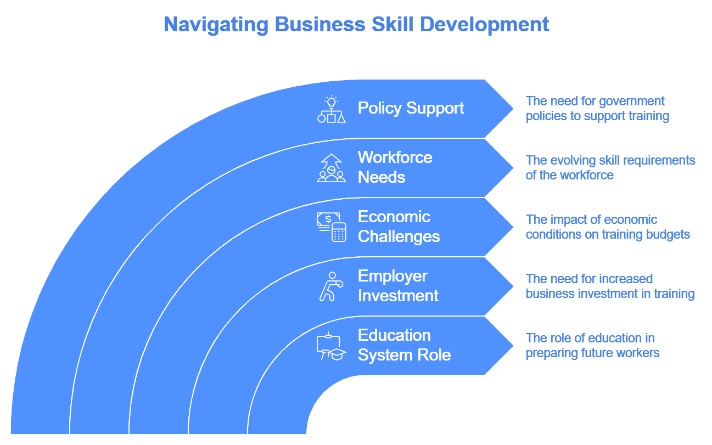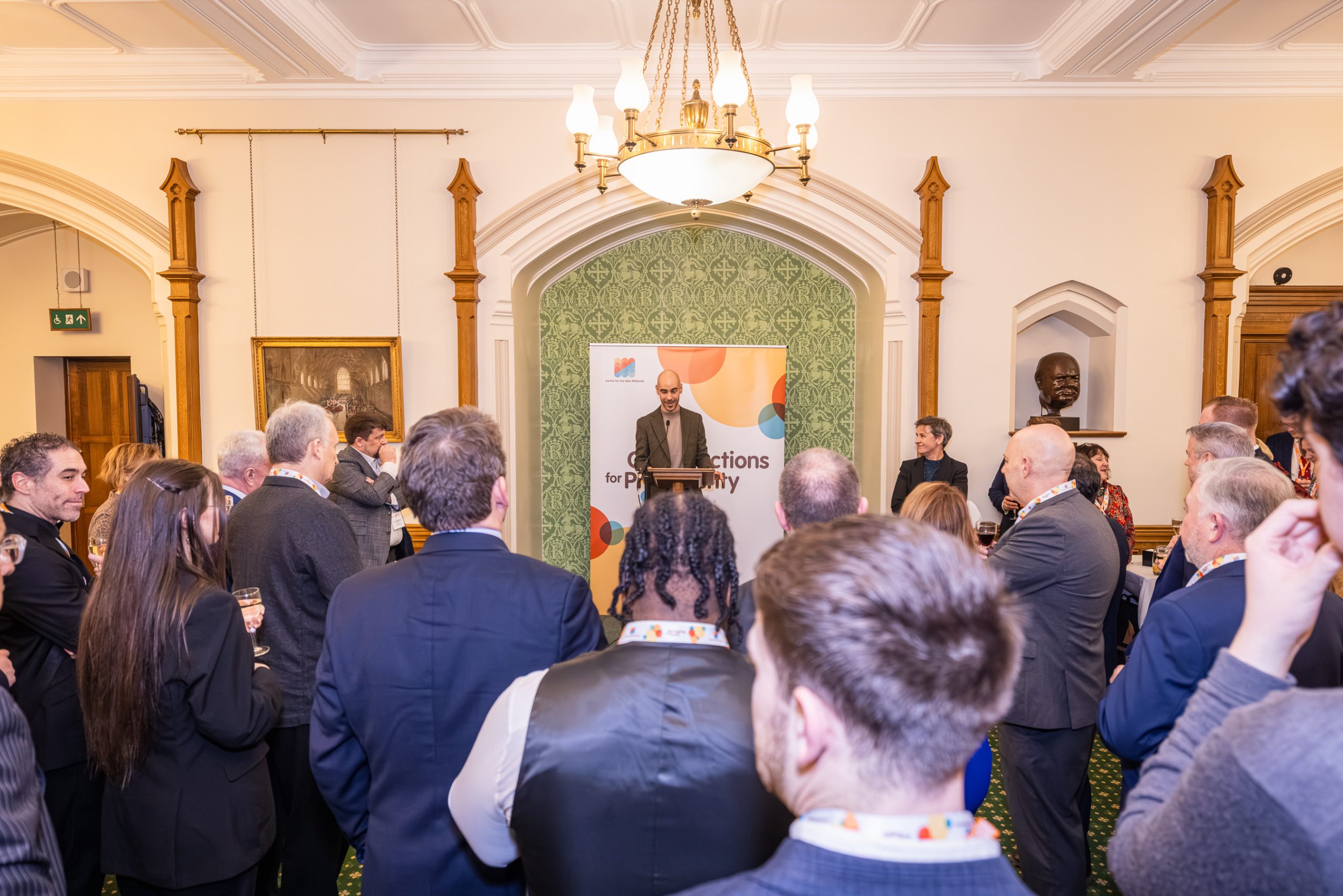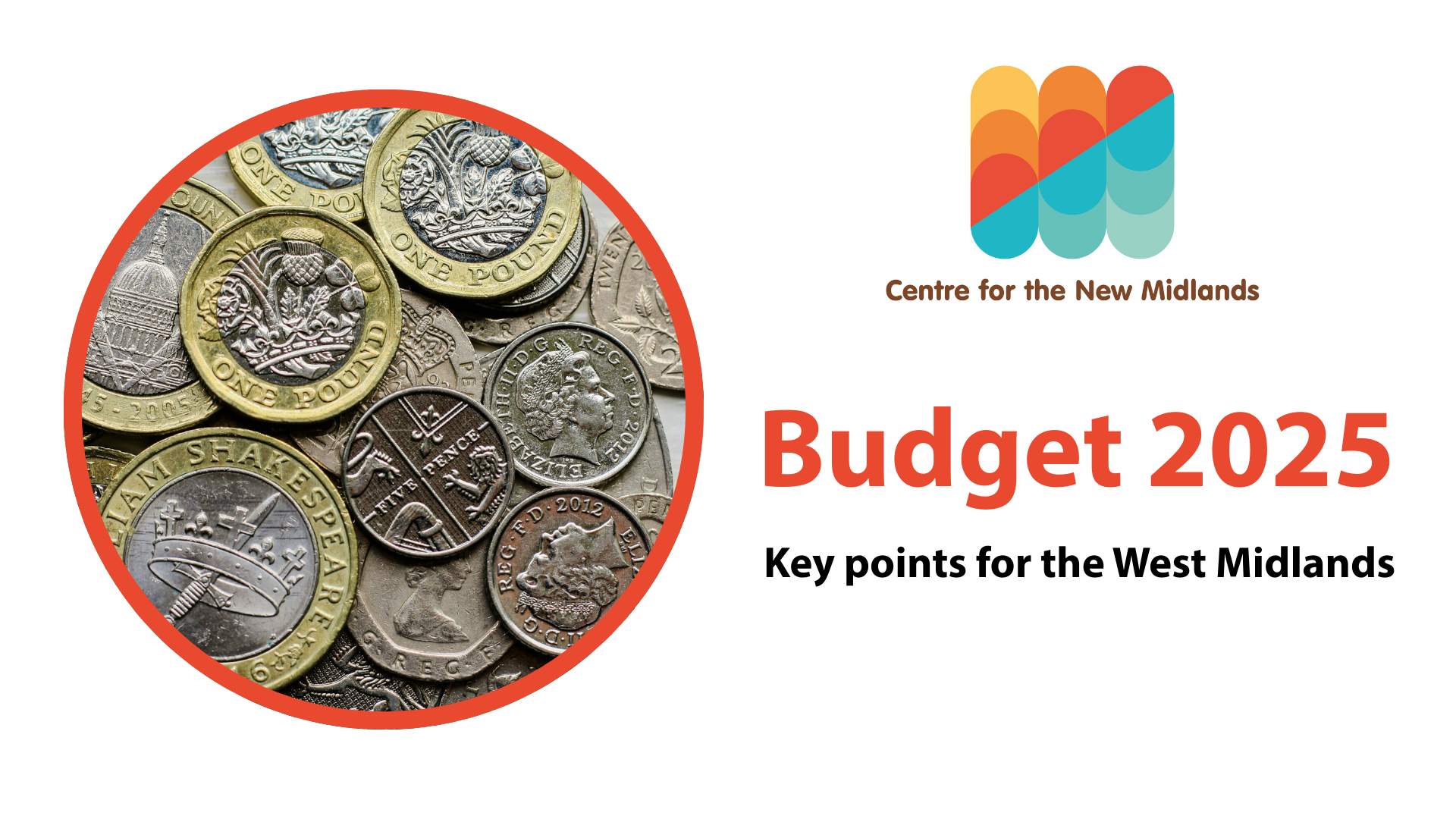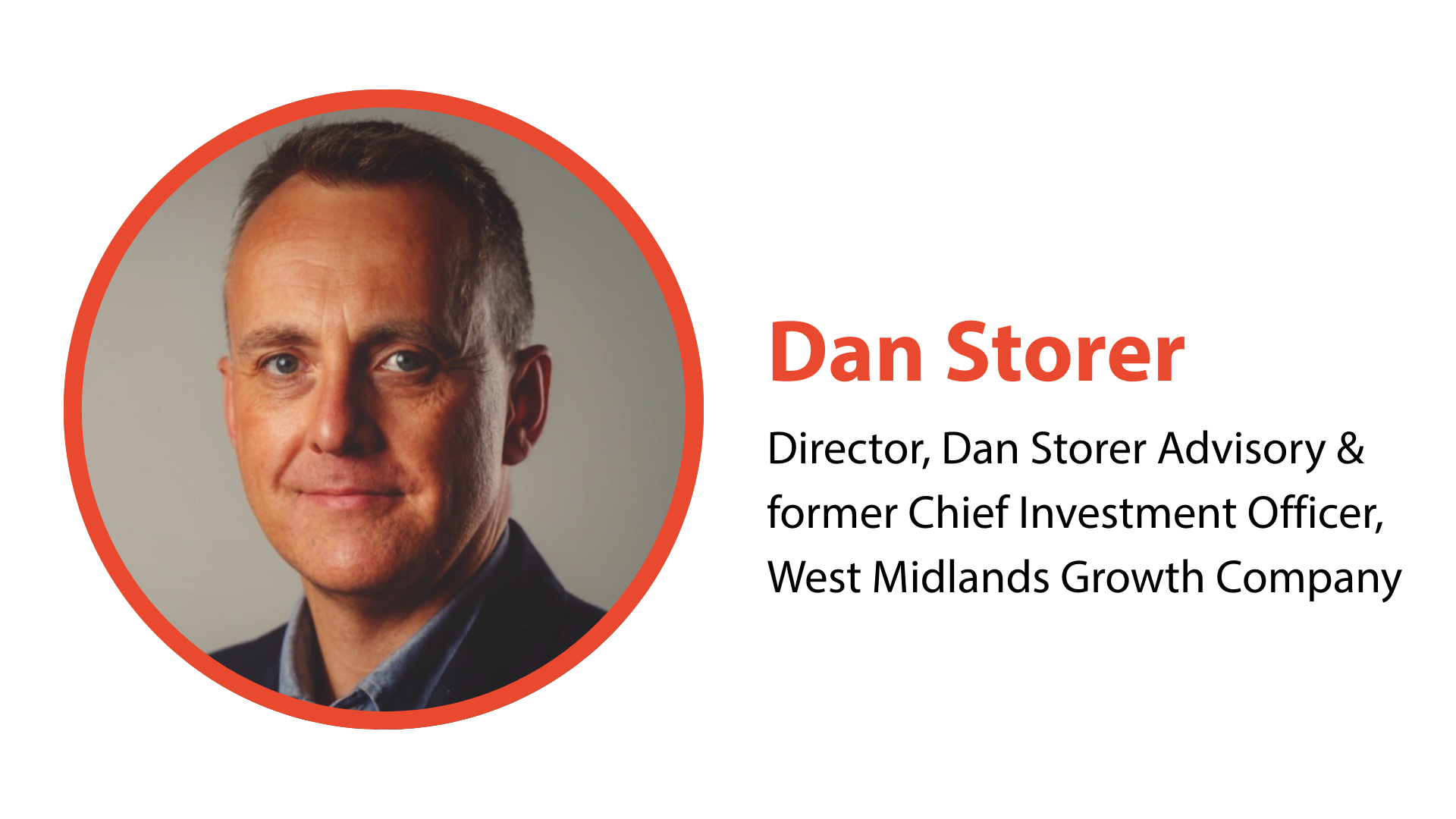In this article, Gareth Jones (Head of Strategic Finance, Midlands at Virgin Money & Member of CNM’s People and Skills Leadership Board) asks the difficult question of “How can we be more productive without more investment?”
(December 2024)
The need for business to improve skills and increase productivity has been evident for too long.
The GDP first quarterly estimate for the UK: July to September 2024 is estimated to have increased by just 0.1%, with an outlook of modest 1-1.5 % per annum over the coming 3 years.
Questions are asked about how well schools, colleges and universities are preparing young people for work and developing the skills needed by employers. Education of course plays an important role but with the pace of change these establishments are being asked to hit a moving target. How many years can businesses effectively plan for? If we look ahead beyond 3 maybe 5 years how many businesses are clear on the roles they will have and the skills they will need.
We need our education systems to produce young people who are committed to continuous learning, coachable, good communicators, technologically savvy, literate, numerate, able to work in teams, amongst many other fluid skills but we will need businesses to train and develop the changing needs they have around specific skills.

At a Midlands Skills Roundtable hosted by PwC earlier this year – as part of its Framework for Growth research into the key challenges facing the government in its drive for growth – I learnt employer investment in training has fallen 28% in real terms since 2005. Also, that EU firms on average invest double what UK firms currently spend on training.
Other takeaways were that 80% of the workforce of 2030 are already in the labour market, so already outside of our education system. The skills they require will also be very different, in part driven by developments in AI. It is estimated that there will be a 3m surplus of low skills and a 2.5m shortfall in high skills.
It is hard to see how we drive growth and increase productivity without businesses investing more in training and development.
This is easier said than done though. Businesses are operating in tough economic conditions with growth and profits hard earned. Many businesses will not have the cash available to make the necessary investment.
Larger businesses will already be paying an apprenticeship levy, is this flexible enough to be effective? are we seeing the resultant schemes producing the skilled people needed? Recent announcements have indicated axing funding for Level 7 apprenticeships from levy funding. Professional Services is a Midlands success story boosting the regional economy. Many leading firms have used apprenticeships to develop and grow new talent locally. The impact of the proposed changes remains to be seen.
The recent budget will add further costs to business in employing people. Will we see this squeeze investment in training and development further still?
The impact on business is unknown as businesses weigh up the options open to them.
- Increase prices, clearly not without its challenges for many.
- Reluctantly accept less margin but is this sustainable?
- Negotiate lower wage increases with employees but many labour markets remain tight.
- Employ less people or do not replace leavers.
Given none of these are easy or palatable the alternative is back to increasing productivity. Our experience here as a collective has not been great although there are examples across Midlands who show businesses doing fantastic work. Productivity growth will not happen without increased investment with a significant proportion of the spend reversing the trends on learning and development outlined earlier.
At the launch of CBI Conference in November, CEO Rain Newton-Smith highlighted how the extra costs were causing business owners to ask whether they can afford to take a chance on new people, to invest in training, with two thirds of members believing they would invest less after the budget. Newton-Smith said ‘When you hit profits, you hit competitiveness, you hit investment. You hit growth’.
The ‘Get Britain Working’ White Paper issued on 26th November announces some significant changes with investment to support employment and development of skills. Will this be the catalyst to improve productivity?
Personally I don’t see how there is enough scope at the moment for businesses to really increase their investment in developing people. Without this I do not see how we improve productivity and achieve material growth.
So how do we better support and incentivise businesses to invest more in developing their workforces today and in the future? What would you like to see being done?
This is a personal blog post. Any opinions, findings, and conclusion or recommendations expressed in this article are those of the authors and do not necessarily reflect the view of the Centre for the New Midlands or any of our associated organisations/individuals.
ABOUT OUR AUTHOR:
Gareth Jones is an experienced banking leader who has supported businesses across West Midlands for last 30 years. He is currently Head of Strategic Finance for Midlands for Virgin Money. He is well known in West Midlands vibrant Professional Services community.
He has always believed that strong businesses are essential for the prosperity of our region. Inspired by the owners and management teams of customers he has worked with, Gareth and his team’s focus is helping businesses grow stronger.
Gareth has held various leadership positions for last 15 years. He loves developing people and building teams.
He truly believes that in business people make the difference. This is Gareth’s motivation to support the Centre’s People and Skills Board. He knows the continual challenge of attracting, retaining and developing people in a rapidly changing world.
He hears every week from customers in all industries and peers in other professional services organisations that People are their number one challenge. If West Midlands is to continue to thrive in the future we need to ensure we unlock all the potential talent we have available.








